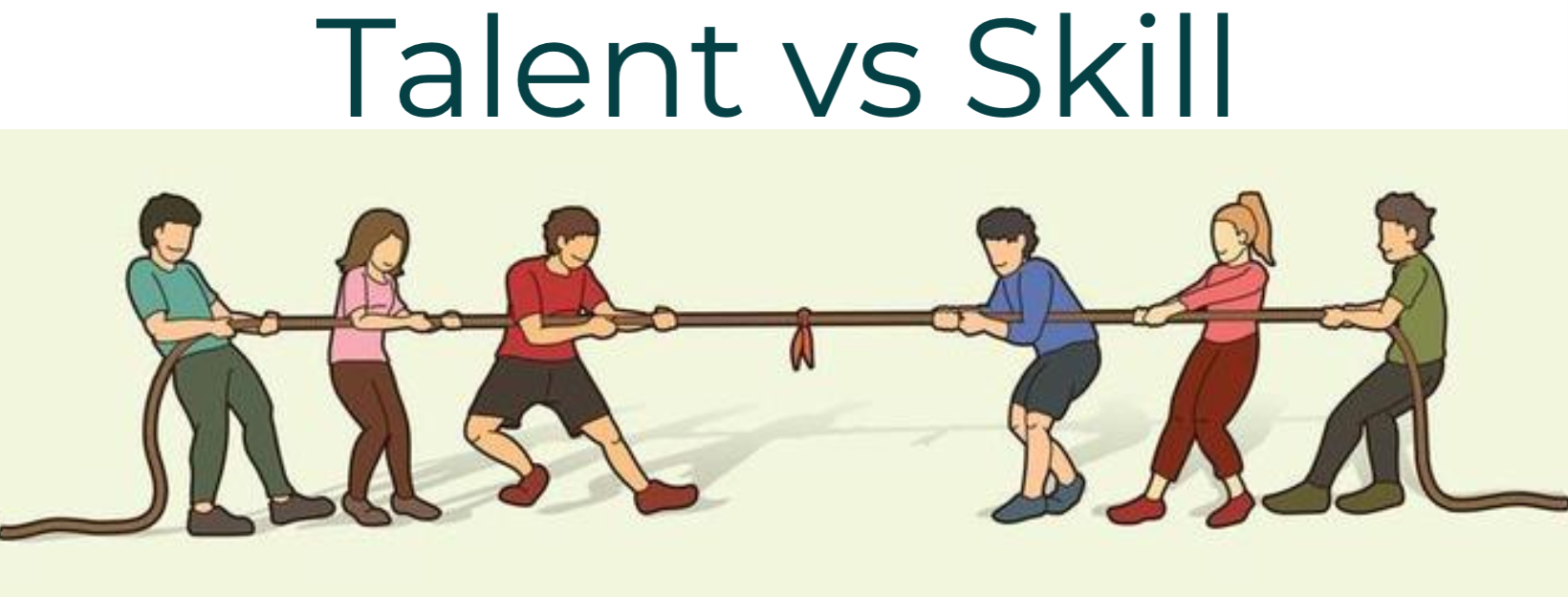Is Voice Acting A Skill Or A Talent
Jun 27, 2023
Since I started acting over 20 years ago, there has been this debate "Is Voice Acting A Skill or a Talent". You could probably pick any sport, job, artistic endeavor, and still have the same argument. But after pursuing a career in voice acting, I hear it today just as much as I did for stage acting years ago. And today, like then, I have very strong feelings about it and why I think there are so many misconceptions.
Importance of voice acting in various industries
What makes good voice acting so important? For starters ... we're fighting against AI and others who want to replace human voice actors.
This means that now, more than ever, we have to be at our very best in order to keep booking voice-over work and not losing to artificial intelligence.
Next, good voice acting can elevate a brand well beyond good visuals, video, written word, etc. This is because the way we all communicate is visual AND verbal. The human voice is uniquely ours, and our ears, bodies, and brains are tuned to take it in and digest it.
Without that connection, brands, businesses, educational institutions are just a collection of information, not a human connection. And we are all looking for that human connection now more than ever.
Explaining the debate: skill vs. talent
Skill are what you learn - The idea is that you can train yourself to get better in any given area.
Talent is what you are born with - The idea behind talent is that we have abilities without having to learn them.
Which do you need more, skill or talent?
Many people fear they don't have the talents to be successful. Learning skills gives people a way to level the playing field. But can someone be successful without having all the talents? And which produces better voice actors ... skills or talent?

Understanding the role of both skill and talent in voice acting
In order for us to defend one position over another and for me to tell you my humble opinion, we need to make sure that we understand the role both play.
Talent in voice acting can be seen through innate sensitivity. Sensitivity is what we call the ability to be sensitive to multiple modes of communication naturally without training. A person has a gift of communicating an idea or message so everyone understands exactly what they are trying to say.
And further more, a person has the ability to add subtext to a message so the listener understands the words and how the speaker wants them to feel about it. I like to call this the "story underneath the story."
Skills added to talent allows the voice actor to tailor their message to different modes of "expected" delivery. It's like playing a game ... you must learn the rules in order to break them. The more skilled a voice actor is at playing in their specific genre of expectations AND creativity, the more opportunities and success will come their way.
Skill and Talent Defined
Differentiating between skills and talents
Talent in voice acting can be described as multiple things:
- The sound and timbre of a voice
- Creativity with communication
- Sensitivity and awareness of how people except AND desire to hear the way words are spoken naturally
Skills in voice acting can be described as such:
- Understanding the different tones in voice-over and utilizing their particular patterns
- Knowing each media that a voice actor performs in and how those deliveries differ from the other
- Knowledge about how to use equipment, resources, etc. to reach more people
Skill: Building expertise through training and practice
The easiest and most expected way to gain skills is through training and practice. Finding a coach, group, or academy, like A VO's Journey Elite Academy, are great ways to get access to the knowledge that is needed to be successful in the voice-over industry.
Once you have access to that knowledge, practicing can increase your acting abilities to meet the needs of each industry will make you more competitive and hirable.
Talent: Innate abilities and predispositions
A voice actors work is all about telling a story. The story may be 15 seconds or 15 hours, but it is still a story. And there is no doubt that certain people have an interesting way of communicating.
Some people have an extremely unique sounding voice that makes us want to listen to them. Some people seem to effortlessly express emotion subtlety just from natural talent.
And some people have a really good ear and can imitate extremely well. As they say, acting is imitation.
The Role of Skills in Voice Acting
Acquiring voice acting skills
1. Attending acting classes and workshops - This is a great way to learn and grow your voice acting skills.
2. Learning voice control, diction, and articulation - Shakespeare said the role of an actor is to be understood by the audience. Understanding different dialects and accents play a big role in voice acting jobs.
3. Understanding character development and emotional range - The more a voice actor understands all forms of story telling, from a plot diagram, to a character journey like in some video games or audiobooks, the better they are able to tell the story and add the appropriate emotions.
Importance of honing technical skills
1. Handling audio files and equipment - These skills are extremely important for any voice-over artist to make it today. Learn best practices and the right equipment for your recording booth.
2. Creating high-quality recordings in a home studio - Making sure you have great sounding audio can be the difference between you getting a call back and not being contacted ever again.
3. Utilizing professional recording studios for certain projects - The more you know about how recording sessions are timed, run, and what is expected of you, the easier it will be for you to work where ever you are asked to.
Improving voice acting skills through regular practice
1. Engaging in vocal warm-ups and exercises - I love vocal warm-ups and exercises like tongue twisters. These should be done everyday regardless of your work. This will help you communicate more effectively and effortlessly.
2. Practicing different voice acting roles and scenarios - One of the best things a VO can do is branch out and try as many different genres in voice-over as they can. Experience is key to your success.
3. Participating in recording sessions and receiving feedback - I believe that constructive criticism is the best way to make an actor think about their performance and how they can make it better.
The Influence of Talent in Voice Acting
Recognizing natural talents in voice actors
1. Having a great voice quality and tonal range - Many times this sets the level for many of us to strive for because of the popularity it gains ... for example: Deep male voices have become a go to expectation for many voice actors.
2. Instinctively understanding character nuances and emotions - A great way to learn is to listen to great character actors and actors who have the ability to share emotion through nuance. This helps us learn the patterns that move us to take action.
3. Adapting to various voice acting roles and genres - To me, this can be a talent and a skill but the ability to intuitively do this without training is a talent.
Talent as a foundation for skill development
1. Enhancing existing abilities through training - Most of us have talents in different areas and training can enhance and draw out those talents.
For example: Learning to use an intense sounding voice for movie trailers can be learned through practicing delivery styles for that genre.
2. Leveraging innate talents for voice over jobs in specific industries - This boils down to trying everything and seeing what sticks. The market will tell you where your talent is, even if you don't know.
3. Standing out in the competitive voice acting industry - It isn't enough to just have talent. Everyone has a talent. It is more important to build the skills that enhance that talent to stand out.
Successful Voice Actors: Skill, Talent, and Beyond
Examining the careers of successful voice actors
1. Their journey in developing voice acting skills - When ever you get a chance, I recommend seeking out professionals that have built a thriving business. Learn about their journey and what they went through to get where they are. This is the best way to determine what path you can take for similar results.
2. Capitalizing on their natural talents - By learning their journey, you can see how they utilized their talents to grow their businesses and you can apply it to yours.
3. Combining skill and talent for remarkable performances - I often use recordings of great voice actors as a way to practice my deliveries.
The importance of continuous growth and learning
1. Adapting to evolving voice acting trends and technologies - Find a group of like minding voice actors that are active in the voice-over industry and they will help you keep up-to-date with the current trends.
A VO's Journey Elite Academy
2. Expanding repertoire and exploring new voice acting roles - Push yourself to try other genres. This will help your voice acting as a whole.
3. Seeking professional development opportunities - Training is the key to success. There should never be a time where you are not training yourself.
Conclusion
Recap of the skill vs. talent debate in voice acting
The debate between skill vs talent in voice acting has raged forever. Is it skill or talent? Which one do you need to be successful? It is clear that the debate will only grow now that AI is apart of the VO game.
Focus on skill development and leverage your natural talents
No matter where you are in your voice-over journey, skill development is key to your success. Work with a voice-over coach and/or training group so you can learn to use your natural talents to help you stand out.
Final thoughts on pursuing a rewarding voice acting career in various industries
I have always been a "I will decide my own destiny" kind of guy. That line of thinking leads me towards skills over talents. However, the longer I do this and the more voice actors I coach, I realize that every voice actor has a talent in communication.
Some have very commercial sounding voices and some have very documentary of authoritative voices. Some even have great character and cartoon voices.
The point is that all of your talents AND skills contribute to you being a successful voice actor. And the debate about "is voice acting a skill or a talent" should be about finding your talents, it should be about building the skills to use them.






